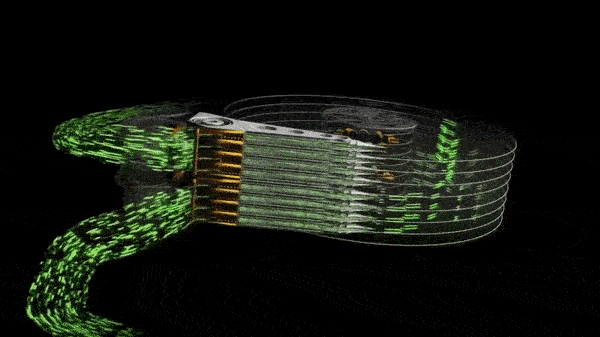Seagate Unveils Breakthrough Multi Actuator Hard Drive Tech That Could Double Performance
Seagate explains that while today's HDDs have greater areal densities than ever before, it has handicapped overall drive performance. To combat this lull in performance, Seagate is taking aim at the drive actuator. A HDD's actuator moves over the internal spinning platters (which can number up to 10 in modern HDDs) to read and write data. All modern hard drives use a single actuator to perform these read/write tasks in synchronous fashion.

However, with Multi Actuator technology, there are actually two actuators that move independently along a single pivot point. Seagate says that by going this route, each actuator will control exactly half of the HDD's arms. The independent nature of this arrangement allows Seagate to effectively double performance (at the same capacity level) compared to a HDD with a single actuator.
“We’re leveraging our long-time leadership in engineering all elements of hard drive technology to provide a solution with breakthrough performance, within industry standards,” said James Borden, Seagate Principal Product Strategist. “Our Multi Actuator solution is based on proven technology and adheres to current standards, so it’ll plug-and-play into today’s infrastructure.”
Seagate surmises that parallelism has invaded many aspects of our computing space (look at today's multi-core processors), so it makes sense that the technique would be applied to the venerable HDD. After all, Seagate is promising double the IOPs with no downsides. That probably isn't exactly true, however, as there will likely be a pricing premium for the increased complexity of dual actuators and more advanced drive firmware. But given the somewhat stagnant progress that we've seen with HDD performance over the years, most enterprise customers will gladly pay a few extra bucks to reap the benefits.
According to Seagate, production HDDs with Multi Actuator technology will hit the market "in the near future".


